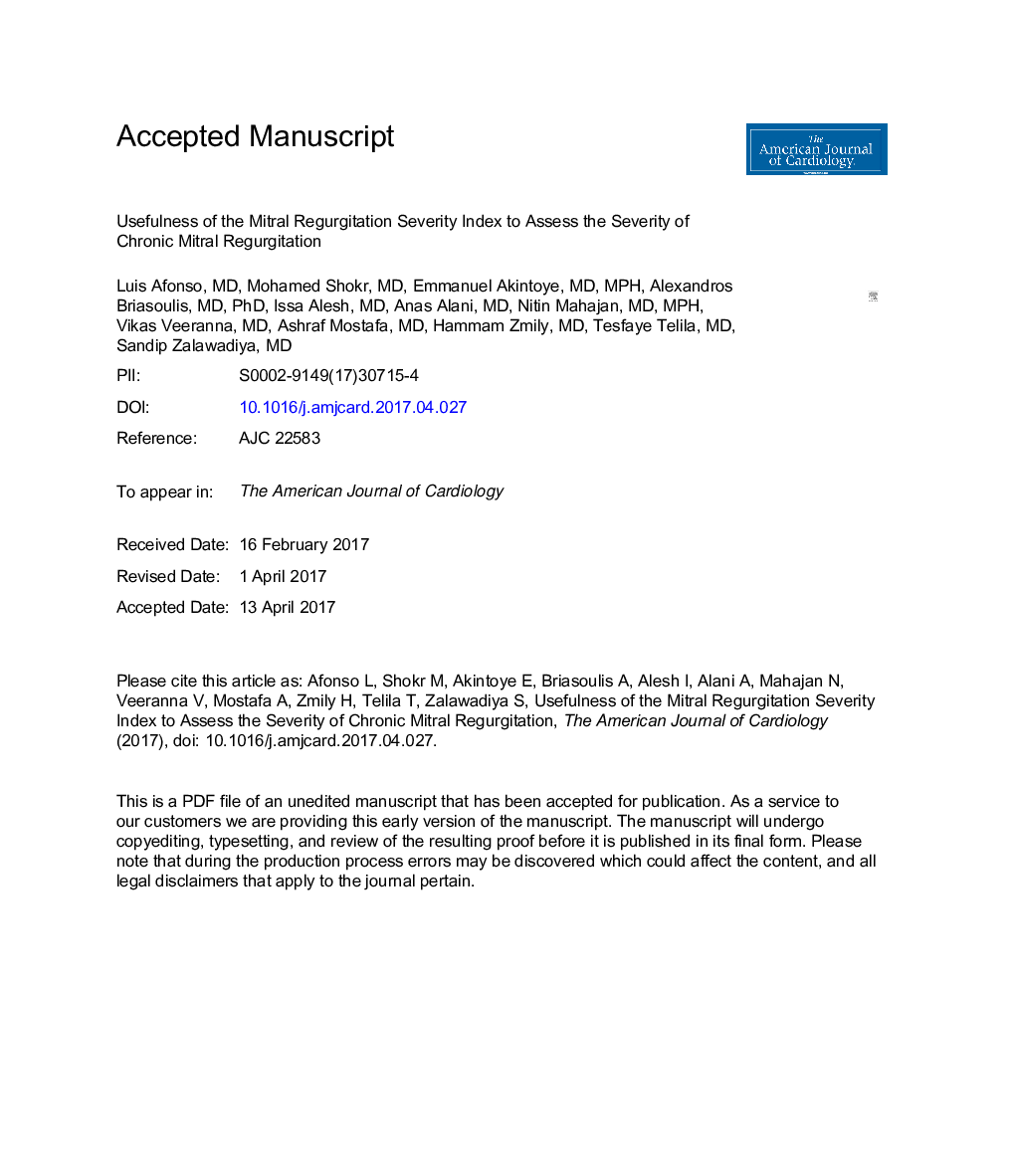| Article ID | Journal | Published Year | Pages | File Type |
|---|---|---|---|---|
| 5594947 | The American Journal of Cardiology | 2017 | 26 Pages |
Abstract
Existing metrics for grading mitral regurgitation (MR) are limited and fraught with high interobserver variability. We developed and evaluated a Doppler-based, semiquantitative novel index (Mitral Regurgitation Severity Index [MRSI]) of MR severity. In a total of 125 patients (70 in the derivation cohort and 55 in the validation cohort), MRSI was calculated as a ratio of time velocity integral of mitral inflow (continuous-wave Doppler-TVI MV) to the time velocity integral of the left ventricle outflow (pulse-wave Doppler-TVI LVOT). Inter-rater agreement for MRSI and predictive ability of the MRSI were then assessed. In the derivation cohort, MRSI differed significantly between patients with severe MR (2.6 ± 0.51) and mild-moderate (nonsevere) MR (1.4 ± 0.18) and a cutoff of â¥1.8 was associated with optimal diagnostic accuracy. In the validation cohort, MRSI exhibited excellent agreement between a level II and a level III reader with a mean difference of â0.14 (95% confidence limit of agreement: â0.80 to 0.53), correlation coefficient of 0.88 (p <0.001), and 16% CV; and using the cut point of 1.8, it exhibited good inter-rater reproducibility with a kappa coefficient of 0.72 (p <0.001). In conclusion, MRSI appears to be a simple, quantitative, practical, color-independent metric to differentiate severe MR from nonsevere MR.
Related Topics
Health Sciences
Medicine and Dentistry
Cardiology and Cardiovascular Medicine
Authors
Luis MD, Mohamed MD, Emmanuel MD, MPH, Alexandros MD, PhD, Issa MD, Anas MD, Nitin MD, MPH, Vikas MD, Ashraf MD, Hammam MD, Tesfaye MD, Sandip MD,
